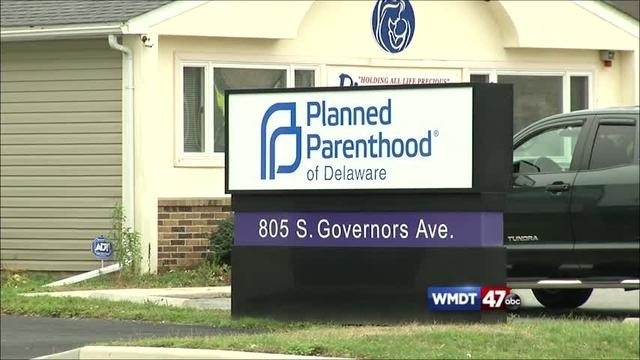The abortion giant Planned Parenthood filed a lawsuit Wednesday to force Pennsylvania taxpayers to pay for elective abortions.
The lawsuit seeks to reverse a state law that prohibits Medicaid dollars from funding elective abortions, according to the AP. The Pennsylvania Supreme Court upheld the law in 1985.
Planned Parenthood, the Allegheny Reproductive Health Center abortion clinic, the Women’s Law Project and other pro-abortion groups involved in the lawsuit claim the state law discriminates against women seeking abortions, according to the report.
But Maria Gallagher, legislative director for the Pennsylvania Pro-Life Federation, said money, not women’s health, is at the center of the lawsuit.
“At a time when Pennsylvania’s abortion totals are at a record low, abortion businesses are trying to capture a lucrative market to prop up their sagging industry. This is a lose-lose proposition—for taxpayers and for pregnant women,” Gallagher said. “Poll after poll has shown that taxpayers in the U.S. do not want their tax money to be spent on abortion, period.”
The Philadelphia Inquirer reports more:
The ban “deprives low-income women of reproductive health care” and discriminates on the basis of sex, said Susan J. Frietsche, senior attorney with the Women’s Law Project, which filed the suit along with Planned Parenthood Federation of America and others.
Click here to sign up for pro-life news alerts from LifeNews.com
Federal law bans the use of federal Medicaid dollars to cover elective abortions, and most states have outlawed the use of state Medicaid funds.
Pennsylvania’s ban, enacted in 1982 and upheld by the state Supreme Court in 1985, allows coverage only if the pregnancy is caused by rape or incest, or the abortion is needed to save the woman’s life.
In other words, the lawsuit seeks to force taxpayers to pay for abortions for any reason up to 24 weeks. The state prohibits abortions after that point.
Sari Stevens, director of Planned Parenthood Pennsylvania Advocates, celebrated the lawsuit Wednesday in a statement to supporters.
“Sixteen states, including our neighbors in New Jersey, New York, and Delaware, allow Medicaid to cover abortion,” Stevens said. “We believe it’s time that Pennsylvania correct this decades-long injustice. All women — regardless of their health insurance status or zip code — deserve access to safe, legal abortion.”
Most states prohibit taxpayer-funded abortions, and polls consistently find that most Americans oppose them. A Politico/Harvard University poll found that just 36 percent of likely voters support taxpayer funding for abortions, while 58 percent oppose it. A new national poll by Marist University similarly found that three-quarters (75 percent) of Americans oppose taxpayer funding of abortion abroad,. Opposition to this funding includes most Republicans (94 percent), Independents (80 percent) and a majority of Democrats (56 percent).
Sixteen states use taxpayer funds to pay for elective abortions through Medicaid. In November, West Virginia voters passed a constitutional amendment to stop taxpayer-funded abortions in their state.
Planned Parenthood would benefit hugely from a win. It already is the largest abortion chain in America, performing about one third of all abortions in the U.S. Its most recent annual report listed 321,384 abortions. It also reported reaping in about half a billion tax dollars from hardworking Americans.
Taxpayer-funded abortions has been a key goal of abortion activists and the Democratic Party. In 2016, the Democratic National Committee approved a platform calling for full support of abortion for any reason up to birth and taxpayer funding of abortions, and failed presidential candidate Hillary Clinton campaigned on the issue.
Though pro-abortion Democrats now control the U.S. House, a bill to force taxpayers to fund abortions almost certainly would not pass the Republican-controlled U.S. Senate or be approved by President Donald Trump. So, as the abortion industry often does, it turns to activist judges to push its radical pro-abortion agenda.








